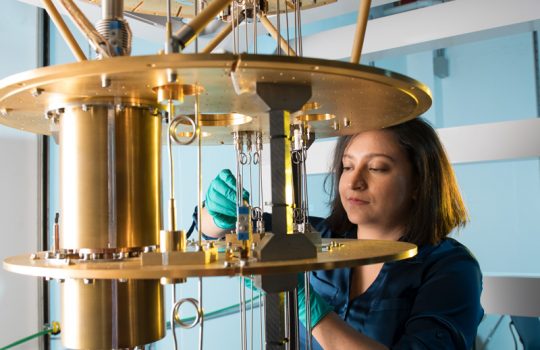The search for dark matter is dramatically expanding
From Quanta Magazine, Nov. 23, 2020: Physicists plan to leave no stone unturned, checking whether dark matter tickles different types of detectors, nudges starlight, warms planetary cores or even lodges in rocks. Their efforts include the SENSEI and ADMX experiments, in which Fermilab plays a key role.




